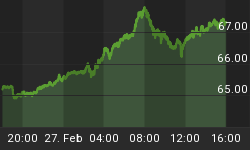Unemployment continues to plague our economy. In spite of constant claims that we have just turned the corner into recovery, the jobs reports remain grim with no real signs of improvement. While Keynesian economists and big government apologists scratch their heads about persistent unemployment in spite of unprecedented government "investment" in the economy, free market economists understand the problem perfectly well. In short, they understand that we are looking to the Federal Reserve to solve an unemployment crisis that the Fed itself largely created.
For example, the Fed is supposed to maintain full employment as half of its "dual mandate". But the Fed simply has the wrong tools to do this. In fact, its credit expansion and manipulation of interest rates cause harm when they are applied to "help" the economy. As we saw with the housing boom and bust, Fed-created inflation cannot be sustained without harmful consequences. The Fed's artificial boom led to the unemployment we're suffering today. The Fed is not a small business or a manufacturer that creates value or increases productivity to sustain real job growth. It literally destroys value by printing more money, and distributing it through sweetheart deals to well connected banks and corporations (including foreign banks!). The only success the Fed has had in maintaining full employment has been on Wall Street where it props up crony banks and investment houses to prevent them from going bankrupt as they should. Instead, they survive to malinvest another day while their executives enjoy jackpot bonuses.
The Fed also pumped up employment in the housing industry with artificially low interest rates that created an unsustainable demand for housing. Millions jumped into this sector when the money was loose and the bubble inflating. Besides the many who bought houses they could not afford and now face foreclosure, there were also those who became employed in housing related fields. These people invested time and money in training and spent years establishing careers in real estate, mortgage lending, construction and contracting, careers that all vanished into thin air with the burst of the bubble. Now they face considerable disruption in their lives as they struggle with unemployment, underemployment and decisions about retraining for different careers. This amounts to a tremendous amount of unnecessary waste that would not have occurred had the housing industry been allowed to develop naturally according to market demands.
Jobs are properly created by entrepreneurs who are willing to work hard and take calculated risks. Jobs are also created through real increases in productivity, resulting from re-invested profits or conservative borrowing at market interest rates. But the Fed has made those risks impossible to calculate, and made borrowing money artificially cheap. As a result, economic growth has been chilled while unemployment skyrockets.
Until those in power understand the harm they do with central economic planning, we will continue to slide backwards and lose jobs. The Fed needs to stay out of the job creating business altogether and the federal government needs to focus on its constitutional duties. Just when we need government to back off, we hear about more government intervention in the economy in the form of more spending, only they call it "investment". It is more properly called "malinvestment", and the resources that are funneled into industries by government policies will only hurt employment more in the long run.















